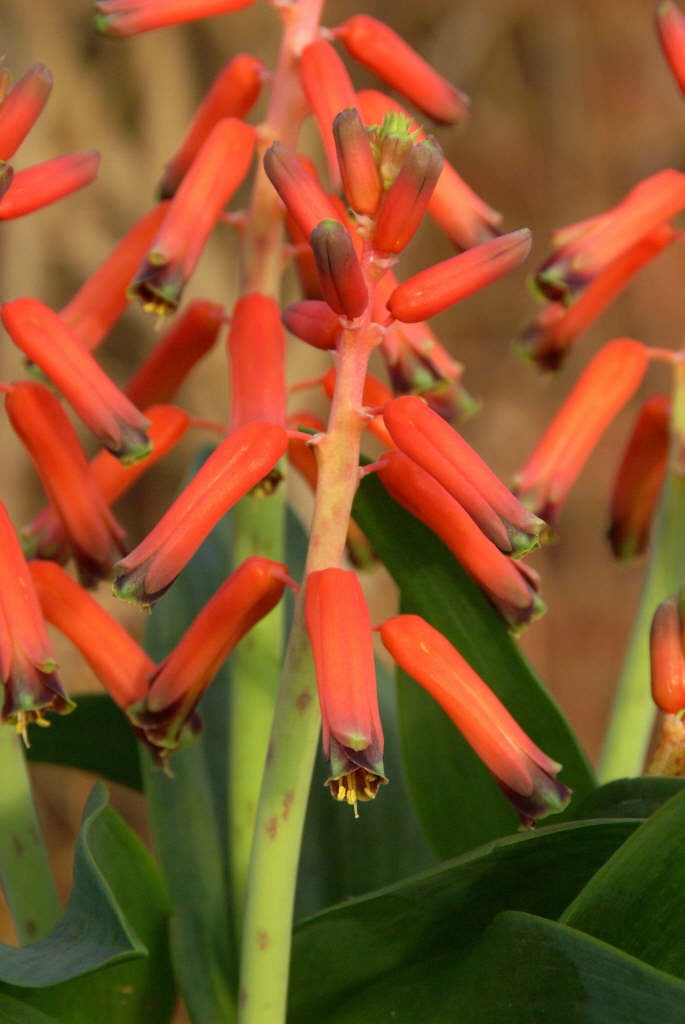Lachenalia bulbifera
bulb-bearing leopard lily
A bulbous perennial to 25cm, with strap-shaped leaves heavily marked with maroon, and erect racemes of pendent, green and purple-tipped, orange or red flowers 3cm in length in late winter or spring

Size
Ultimate height
0.1–0.5 metresTime to ultimate height
2–5 yearsUltimate spread
0–0.1 metreGrowing conditions
Moisture
Moist but well–drained, Well–drainedpH
Acid, Alkaline, NeutralColour & scent
| Stem | Flower | Foliage | Fruit | |
| Spring | ||||
|---|---|---|---|---|
| Summer | ||||
| Autumn | ||||
| Winter | Green Purple Red |
Position
- Full sun
Aspect
North–facing or West–facing or East–facing or South–facing
Exposure
Exposed or Sheltered Hardiness
H2Botanical details
- Family
- Asparagaceae
- Native to GB / Ireland
- No
- Foliage
- Deciduous
- Habit
- Clump forming
- Genus
Lachenalia are bulbous perennials with strap-shaped, sometimes dark-spotted leaves, and erect stems bearing racemes or spikes of tubular flowers, slightly fragrant in some species, in autumn, winter or early spring
- Name status
Correct
- Plant range
- S Africa (W Cape)
How to grow
Cultivation
Under glass grow in peat-free, loam-based potting compost in full light. When in growth water freely and apply a balanced liquid fertiliser fortnightly. Reduce water as the leaves fade and keep dry until new foliage appears in autumn. Can be grown outdoors in a light soil
Propagation
Propagate by seed sown as soon as ripe at 13 to 18°C or remove bulblets in summer or autumn prior to repotting
Suggested planting locations and garden types
- Patio and container plants
Pruning
No pruning required
Pests
Generally pest-free
Diseases
Generally disease-free
Get involved
The Royal Horticultural Society is the UK’s leading gardening charity. We aim to enrich everyone’s life through plants, and make the UK a greener and more beautiful place.